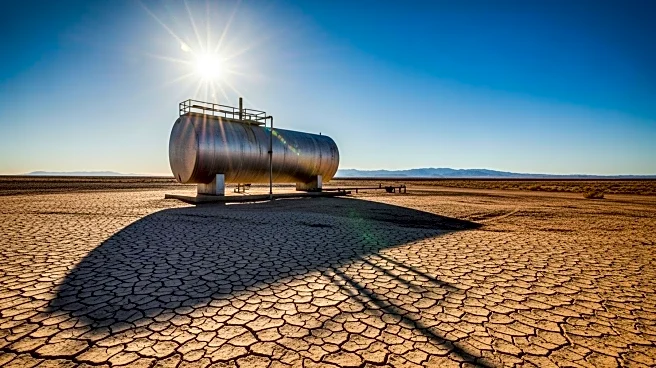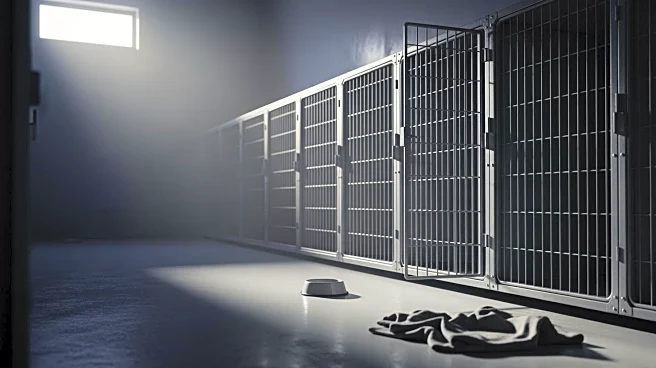What's Happening?
Corpus Christi, Texas, is facing a severe drought that threatens the water supply for its booming industrial sector. The city, a major oil-export hub, has experienced seven years of abnormally dry weather, coinciding with rapid industrial growth. This has stretched the fresh water supply, leading to lawn-watering bans and warnings of stricter usage limits. The Choke Canyon Reservoir and Lake Corpus Christi, the city's main water sources, are only 12% full. The city council recently halted work on a desalination plant due to high costs, sparking controversy among residents and industrial users like Exxon Mobil Corp. and Koch Industries LLC.
Why It's Important?
The drought poses significant risks to Corpus Christi's industrial sector, which is crucial to the U.S. energy market. The water shortage could lead to stricter usage limits, impacting industries that rely heavily on water. This situation highlights the tension between industrial growth and resource sustainability. The halted desalination project reflects broader challenges in balancing economic development with environmental concerns. The outcome could affect local jobs, tax revenues, and the region's economic growth, while also setting a precedent for other areas facing similar issues.
What's Next?
If the drought persists, Corpus Christi may impose stricter water usage limits, potentially reducing available supplies by 25%. The city council plans to explore new options for securing a reliable long-term water source. Industrial users are making contingency plans, and the city is considering attracting businesses that require less water. The ongoing debate over the desalination plant and water management strategies will continue to shape the region's economic and environmental future.
Beyond the Headlines
The water crisis in Corpus Christi underscores the ethical and environmental challenges of industrial expansion in resource-constrained areas. The conflict between residents and industries over water usage highlights broader issues of social equity and environmental justice. The situation may prompt discussions on sustainable development practices and the role of government in managing natural resources.








